Facebook
Twitter
LinkedIn
Pinterest
Reddit
Email
Print
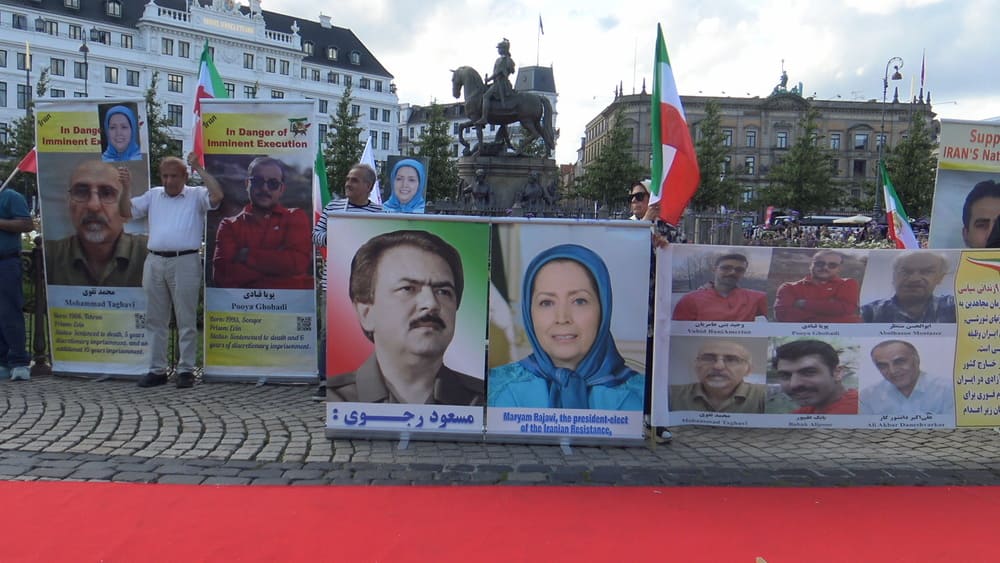 Urgent Protest in Copenhagen: Five Iranian Political Prisoners Face Imminent Execution
Urgent Protest in Copenhagen: Five Iranian Political Prisoners Face Imminent Execution
THIS PAGE WILL BE UPDATED WITH THE LATEST NEWS
UPDATE: 8:00 AM CEST
PMOI Resistance Units in Zahedan past and present tyranny, paving the way for a democratic future
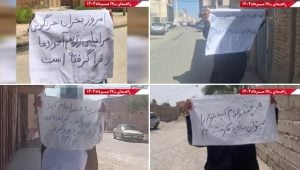
In the heart of Sistan and Baluchestan province, a region bearing the brunt of the Iranian regime’s brutal repression, a clear message of defiance is ringing out. On August 8, PMOI Resistance Units in Zahedan took to the streets, displaying banners and handwritten placards that not only condemned the clerical dictatorship but also articulated a clear vision for a free and democratic Iran. These acts, carried out amidst an escalating wave of executions, demonstrate that far from being intimidated, the organized Resistance is gaining strength and clarifying its path forward for the Iranian people and the world.
Maryam Akbari Monfared Faces Serious Threat to her Life in Prison
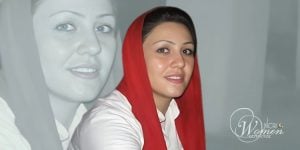
The life of Maryam Akbari Monfared is in grave danger in Qarchak Prison, in Varamin. Insecurity and denial of medical care are putting her health and survival at severe risk.
The prominent political prisoner, now in her sixteenth year of incarceration without a single day of furlough, remains confined in Qarchak prison under conditions that endanger both her physical safety—due to the prison’s violent environment—and her health, as she is systematically denied medical treatment.
Bern, Switzerland – August 7, 2025: Iranians Protest Executions in Iran, Urge Freedom for Political Prisoners
Bern, Switzerland – August 7, 2025 – Freedom-loving Iranians and supporters the People’s Mojahedin Organization of Iran (PMOI/MEK) held an exhibition to denounce the execution of Iranian political prisoners by the Mullahs’ regime. They specifically condemned the recent brutal executions of Mehdi Hassani and Behrouz Ehsani, both members of the PMOI , honoring their memory and sacrifice.
Urgent Protest in Copenhagen: Five Iranian Political Prisoners Face Imminent Execution
Copenhagen, Denmark – August 8, 2025 – Freedom-loving Iranians and supporters of the People’s Mojahedin Organization of Iran (PMOI/MEK) rallied in Copenhagen to sound the alarm over the imminent execution of five political prisoners in Iran: Vahid Bani-Amerian, Pouya Ghobadi, Shahrokh Daneshvarkar, Mohammad Taghavi, and Babak Alipour. The Iranian regime has transferred them to Ghezel Hesar Prison, notorious as an execution site, placing their lives in immediate danger.
Scorching Summer in Qarchak Prison
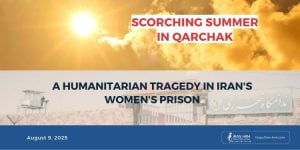
Qarchak Prison in Varamin has, in the summer of 2025, become a grim symbol of systematic human rights violations in Iran. Dozens of female political prisoners are enduring conditions that exceed the limits of human tolerance. Credible and documented reports from inside this prison paint a horrifying picture of the compounded suffering of women behind bars: prolonged power outages, unbearable heat, lack of sanitary and medical facilities, and inhumane living conditions.
In recent weeks, electricity in the hall housing female political prisoners has been cut for up to five hours during the hottest part of the day. With no cooling equipment, not even a single fan, in a closed space without windows or ventilation, the area has turned into a burning furnace. This place, ironically named a “club,” is currently being used to detain women transferred from the women’s ward of Evin Prison. However, even the most basic human standards are not observed.
Eight More Prisoners Executed in a Single Day
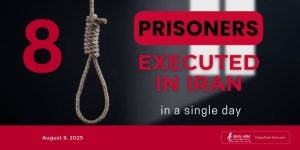
On Wednesday, August 6, 2025, at least eight prisoners were executed in various prisons across Iran, including Isfahan, Mashhad, Gorgan, and Karaj. These executions took place after reports earlier that same day confirmed the execution of three other prisoners at Dastgerd Prison in Isfahan. This brings the total number of executions over the past two weeks to at least 97—a shocking figure that indicates, on average, one person is executed every five hours in Iran.
At Vakilabad Prison in Mashhad, Omid Aziziyan and Hassan Amoosi were executed in the early hours of Wednesday. Both were charged with drug-related offenses. Hassan Amoosi, 45, originally from Zahedan and residing in Torbat-e Jam, worked as a currency exchanger prior to his arrest. Since his detention in 2022, he had consistently denied the charges and insisted on his innocence. His execution was carried out without prior notice to his family and without a final visit—an approach that human rights organizations classify as a secret execution.
Iran: Bitcoin Mining, Electricity Deficit, and Blackouts
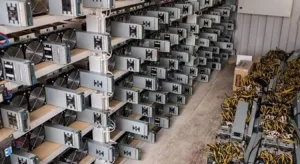
The rise in electricity supply deficits and blackouts has intensified speculation about the causes. In recent days, Bitcoin mining has become a primary topic of discussion. Experts cite illegal Bitcoin mining as a major factor contributing to the electricity shortage. This activity is reportedly widespread and unlicensed.
On July 10, 2025, the prosecutor of Neyriz County announced the discovery of the largest cryptocurrency mining farm in the region, containing 35 unauthorized mining machines. Its electricity consumption was equivalent to that of 150 residential homes. On August 5, 2025, a police spokesperson stated that 8,890 unauthorized mining devices had been seized and 1,000 individuals had been arrested.
Widespread Outrage in Iran Over Blackouts, Soaring Prices, and Regime Spending Priorities
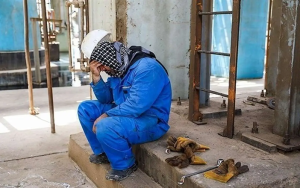
Nationwide power and water cuts, economic hardship, and environmental neglect spark growing anger at policies seen as prioritizing military ambitions over public welfare. Severe power and water shortages, combined with relentless price hikes and economic decline, have triggered a surge of public anger across Iran. Citizens and labor groups say the regime is abandoning the population in the scorching heat of summer, while essential services collapse and the cost of basic goods like bread continues to climb.
Iran Battles Wave of Forest and Grassland Fires Across 11 Provinces Amid Heatwave and Drought
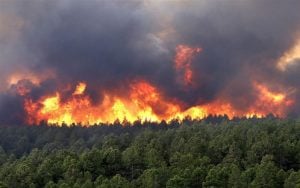
At least 32 wildfires have scorched forests, rangelands, and farmland in early August, raising alarms over climate change, resource mismanagement, and inadequate prevention measures. In second half of July, Iran witnessed a surge in destructive wildfires, with at least 32 incidents reported across forests, grasslands, and farmland in 11 provinces. The situation escalated dramatically on August 5 and 6, when more than 15 fires broke out in Chaharmahal and Bakhtiari, Golestan, East Azerbaijan, Fars, Semnan, Gilan, and Kurdistan.
According to the Department of Environment and the Natural Resources and Watershed Management Organization, the primary trigger has been unprecedented summer heat, which has not only increased the likelihood of fires but also accelerated their spread across dry and highly flammable vegetation.
Disarmament Plan Puts Hezbollah at the Center of a Strategic Blow to the Iranian Regime
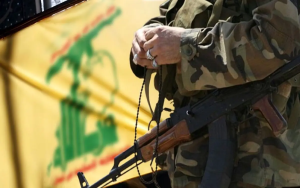
Beirut’s acceptance of a U.S. framework to disarm Hezbollah draws fierce opposition from Hezbollah and Tehran, and could sharply curtail the regime’s military reach in the Mediterranean. The Lebanese cabinet’s recent endorsement of a U.S. framework to disarm Hezbollah marks one of the most consequential developments for Lebanon’s internal balance of power and for the Iranian regime’s network of regional influence. Backed publicly by Washington and Paris, the plan has provoked sharp denunciations from Hezbollah and direct interventions from Tehran-aligned officials, setting the stage for a high-stakes political and security confrontation.
The cabinet decision, announced following a meeting chaired by President Joseph Aoun, accepted the American proposal in principle while postponing precise timing for further deliberation. Lebanon’s information minister confirmed the cabinet’s acceptance, even as four Shiite ministers — aligned with Hezbollah and its ally Amal, plus one independent — staged a walkout in protest before the session ended.
Sistan and Baluchestan: A Province Strangled by the Iranian Regime’s Neglect and Oppression
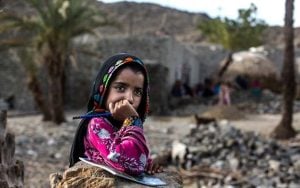
Decades of systemic discrimination, economic abandonment, and brutal repression have condemned Iran’s most impoverished province to early death, identity loss, and generational despair. Sistan and Baluchestan Province stands today as one of the starkest symbols of the Iranian regime’s deliberate neglect, systemic discrimination, and sustained exploitation. Under the shadow of the clerical dictatorship, this southeastern region has been plunged into a vortex of deprivation, identity erasure, and premature death.
Official regime media and statements from its own provincial authorities inadvertently reveal the scale of a crisis that is the product of decades of plunder, mismanagement, and purposeful marginalization.
Iranian Regime Issues New Prison Sentences for Imprisoned Elite Students Ali Younesi and Amir Hossein Moradi
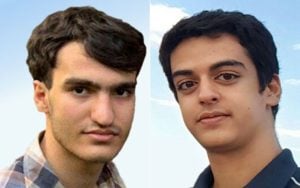
After more than five years in detention, two award-winning Sharif University students face fresh politically motivated charges, underscoring the regime’s ongoing judicial repression. In yet another display of judicial repression, the Iranian regime has issued fresh prison sentences against Ali Younesi and Amir Hossein Moradi, two award-winning Sharif University students who have already spent over five years behind bars. The new rulings, announced by their lawyer, Mostafa Nili, reveal the regime’s continued use of fabricated charges to silence dissent and punish perceived political threats.
On Saturday, August 9, 2025, Nili wrote on the social media platform X that Branch 29 of Tehran’s Revolutionary Court had sentenced both Younesi and Moradi to 15 months in prison for “propaganda against the regime.” In a separate case, the court sentenced Younesi to five additional years in Kerman Prison for the charge of “endorsing and strengthening Israel.”